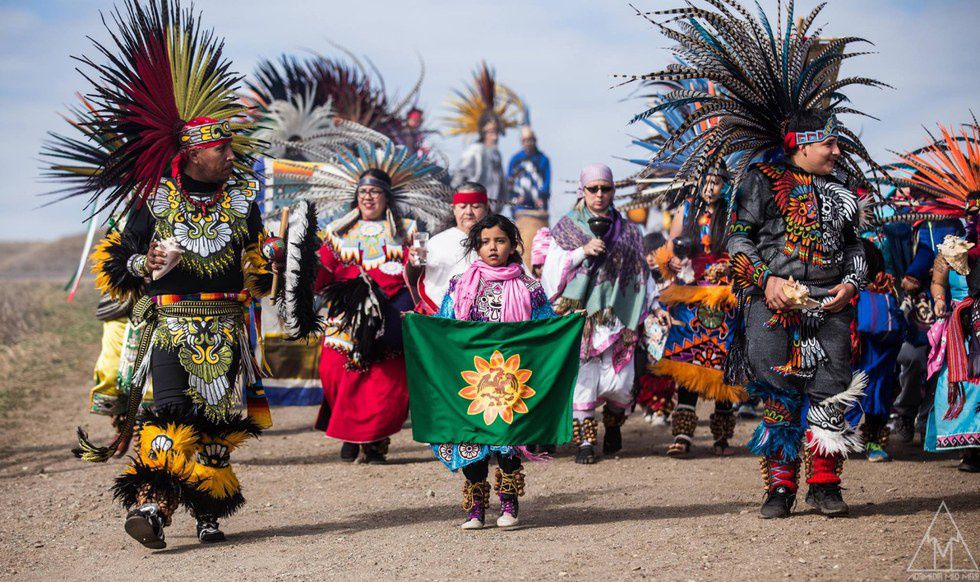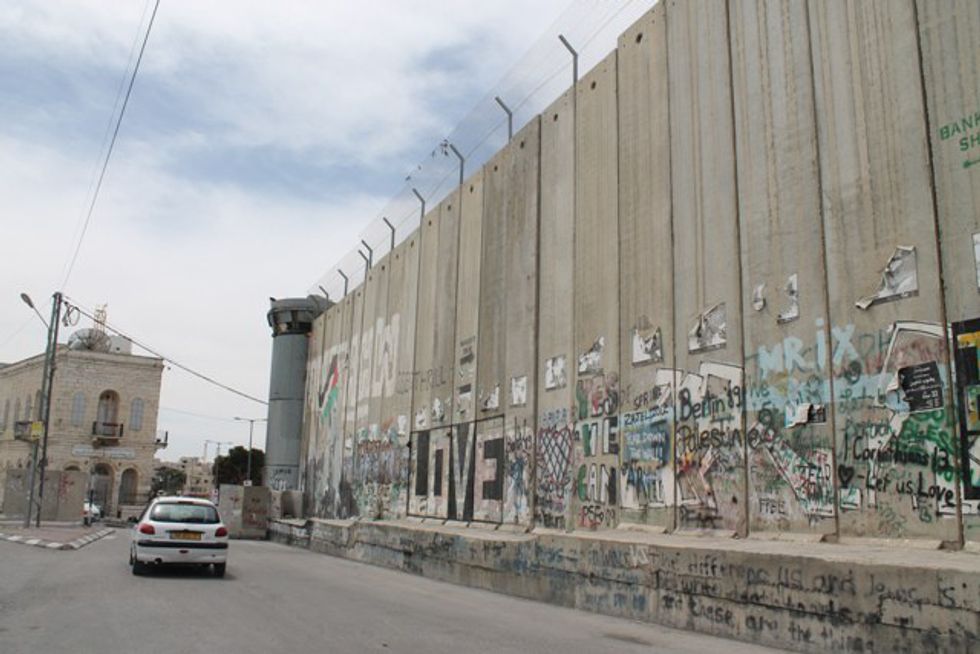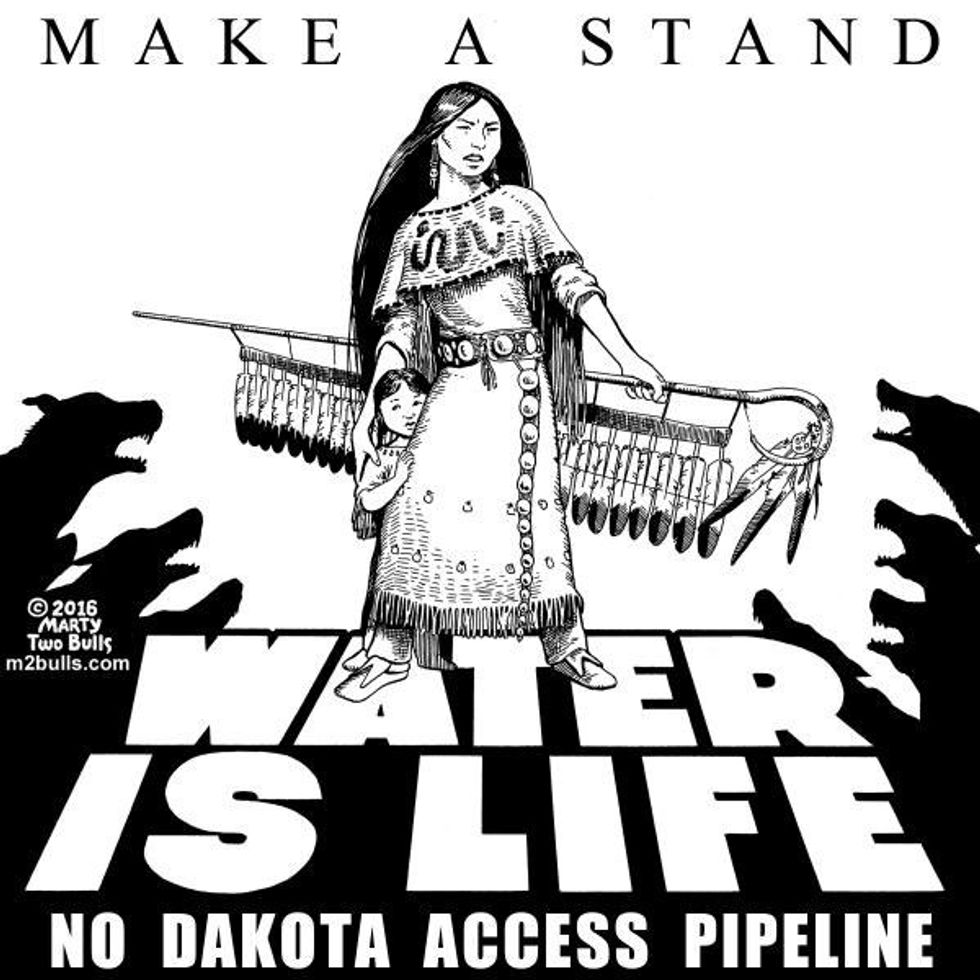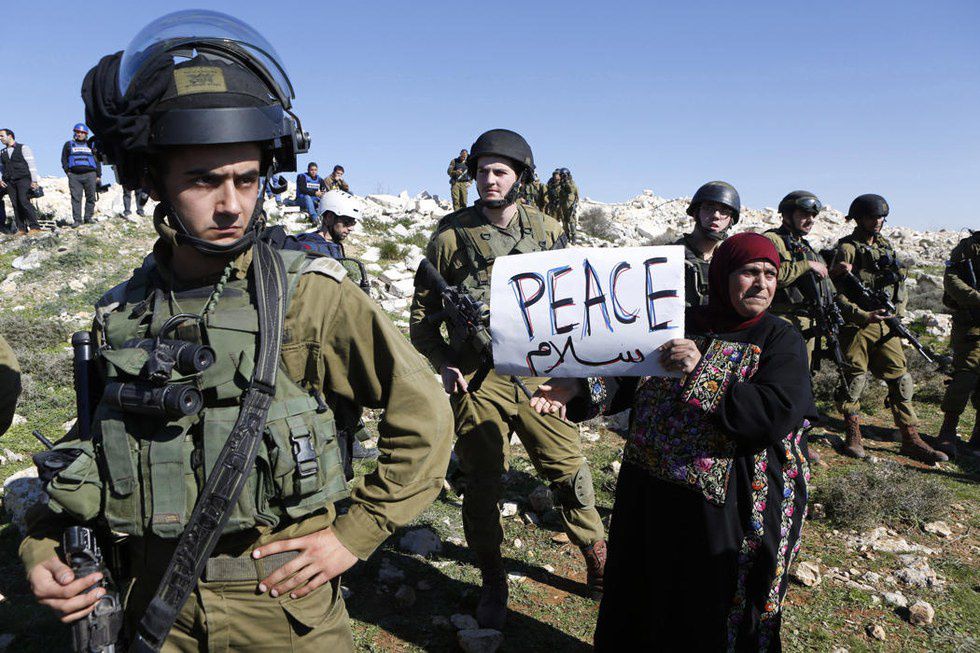Today, as I write this, Native Americans are peacefully protesting in North Dakota for their right to clean water. They are trying to halt the construction of the Dakota Access Pipeline through the Standing Rock Sioux reservation and water supply. The protests have been peaceful but have been met with less than peaceful means. Rubber bullets, smoke grenades, pepper spray, attack dogs, arrests...those are just a few things people trying to protect their homelands and water are being forced to deal with as a result of the United States government wanting to violate its treaties with Native Americans.
As the events at Standing Rock continue to unfold, I find myself comparing them to another peaceful protest that happened a few years ago on the other side of the world in Budrus, a village in the occupied West Bank of Palestine. Budrus is a small village whose borders were going to be changed by an Israeli-constructed apartheid wall. This barrier would cut right into the heart of the village. Hundreds of old olive trees would have to be uprooted, the cemetery would be split in half, and the schoolyard would be in the shadow of the wall. The people of Budrus refused to accept this, so like the Native Americans at Standing Rock, they peacefully protested. Keep in mind that in both cases these people had a lot at stake, their very homes and families were being threatened, and they still choose to remain peaceful. If you were in the same boat, would you be able to do that? Their ability to remain peaceful is a testament to their strength as a people. Both of these situations received international coverage by media outlets, resulting in huge international outpours of support.
As the protests grew, the military involvement became more violent. In Standing Rock, videos spread of protesters ripped from prayer and placed under arrest where they were held in dog kennels. In Budros, the soldiers would beat the protesters and at one point physically occupied the city to make the protesters stop in order to make sure their children got home from school safe. Both of these scenarios are unimaginable and should be unacceptable. One thing I learned in a high school history class keeps coming to mind when seeing the injustices these people are facing: natives are either killed or moved. Palestinians and Native Americans alike are being forced into oblivion by their occupiers' refusal to accept the boundaries established by treaties and resolutions. Both have had to deal with Europeans pushing them off their land, and both have had to deal with continued injustices since their respective conflicts began.
In the case of both crises, their land was used for construction because a majority population did not want the construction cutting through their own lands. In Budrus, the Israeli wall was being built on non-Israeli land against the wishes of the people living there. In Standing Rock, the predominantly white community in Bismarck, North Dakota was concerned the pipeline might contaminate their own water supply. There is a clearly noticeable set of double standards in both situations. What happened to treating others the way you want to be treated?
In Budrus, the villagers and international community were able to pressure the Israeli government into halting construction and shifting the location of the wall, but the wall was nonetheless built. To this day it stands as a sign of the inequality in the land. In Standing Rock, the future is still uncertain. As protesters continue to peacefully oppose the injustices being done there, it is possible that the path of the pipeline will move, but like Budrus, the construction itself will continue. At the end of the day, however, it is up to every single one of us to ensure that no one will ever have to deal with what the Palestinians and Native Americans have had to endure. We need to stand in the face of injustice and promote peace and equality. If nobody cares, nothing will get done. These problems may seem remote, but when one injustice is done, it is done to all of us, and it is up to all of us to right that injustice. United we are stronger than we are apart, and if we want to one day see peace, unity is the only means we have to reach it.




























